Mary McLeod Bethune’s Enduring Legacy As The First Lady Of The Struggle
Mary McLeod Bethune wrote in “My Last Will and Testament”, “Faith is the first factor in a life devoted to service. Without it, nothing is possible. With it, nothing is impossible.” Throughout her life, this remarkable woman dedicated herself to improving the lives of Black Americans.
As a prominent educator, civil rights leader, and founder of Bethune-Cookman University, she left an indelible mark on American history, championing the cause of equality and opportunity for all.
Her Passion For Education Nurtured In Early Days
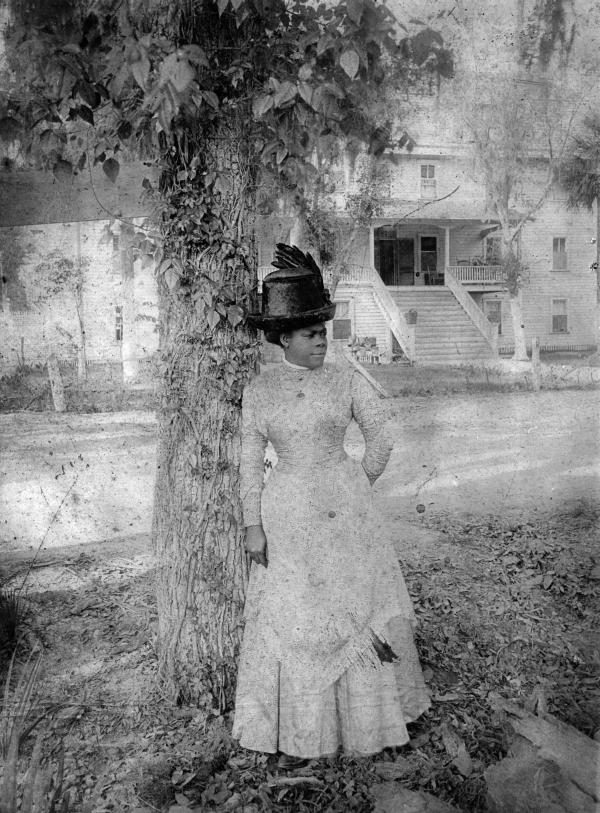
Mary Jane McLeod was born in a small log cabin near Mayesville, South Carolina. Her family lived on a farm in Sumter County where they grew rice and cotton. Mary was the 15th of 17 children, and both her parents, Sam and Patsy McLeod, had been slaves before.
Mary’s parents worked hard to become independent, and they made sacrifices to buy their own farm. As a child, Mary often went with her mother to deliver “white people’s” wash. One day, she picked up a book, but a white child took it away from her, claiming she couldn’t read. This made Mary realize that the only difference between white and colored people was the ability to read and write. It inspired her to learn and make a change.
McLeod attended Mayesville’s one-room black schoolhouse, Trinity Mission School. Going to and from the school, she walked five miles each day. She was the only child in her family to attend school, so she taught her family what she had learned each day. Her teacher, Emma Jane Wilson, a significant mentor in McLeod’s life, helped her attend the same school on a scholarship, which she did from 1888 to 1893. The following year, she attended Dwight L. Moody’s Institute for Home and Foreign Missions in Chicago, hoping to become a missionary in Africa. Told that black missionaries were not needed, she planned to teach, as education was a prime goal among African Americans.
First Step To Establish A School
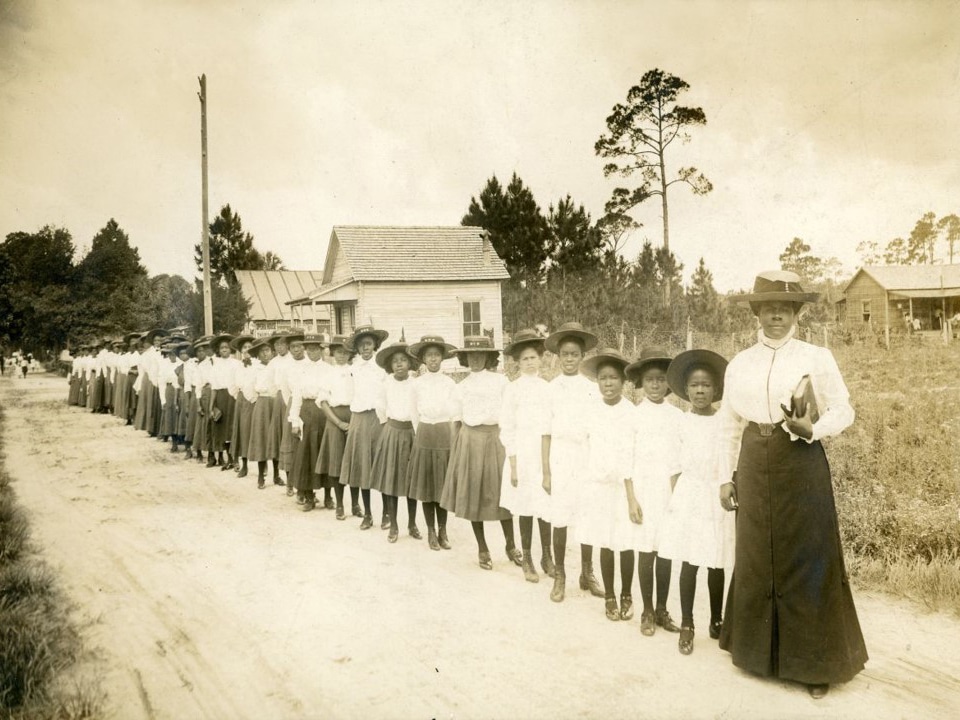
In 1896, Bethune began teaching at Haines Normal and Industrial Institute in Augusta, Georgia. She was influenced by Lucy Craft Laney, the daughter of former slaves. Laney believed in educating girls and women to improve the lives of black people. Bethune shared this belief and said, “I believe that the greatest hope for the development of my race lies in training our women thoroughly and practically.”
When Bethune moved to Florida, she had a strong desire to establish a school for girls. She found a five-room cottage on Oak Street that she could rent for $11 a month. This building used to be a home for her family and a place for her students to learn. The students paid a weekly tuition of fifty cents. In 1907, the school moved to its current location on Dr. Mary McLeod Bethune Boulevard. The land where the school was built was called “Hells Hole” because it used to be a dump site for the city. The cost of the land was $250.
In the early days, the students had to be resourceful. They made ink for pens using elderberry juice, created pencils by burning wood and asked local businesses for furniture. Bethune wrote later, “I considered cash money as the smallest part of my resources. I had faith in a loving God, faith in myself, and a desire to serve.” The local black churches generously donated money, equipment, and labor to support the school. Within a year, Bethune was teaching more than 30 girls.
The school had a demanding curriculum: the girls would wake up at 5:30 a.m. to start their day with Bible study. They received education in home economics and practical skills like dressmaking, millinery, cooking, and other crafts. This emphasis on self-sufficiency prepared them for life as women. The students’ day would end at 9 p.m. As time went on, Bethune expanded the curriculum to include science and business courses. She also introduced high school-level subjects like math, English, and foreign languages.
Her Promotion For Social Justice and Women’s Empowerment
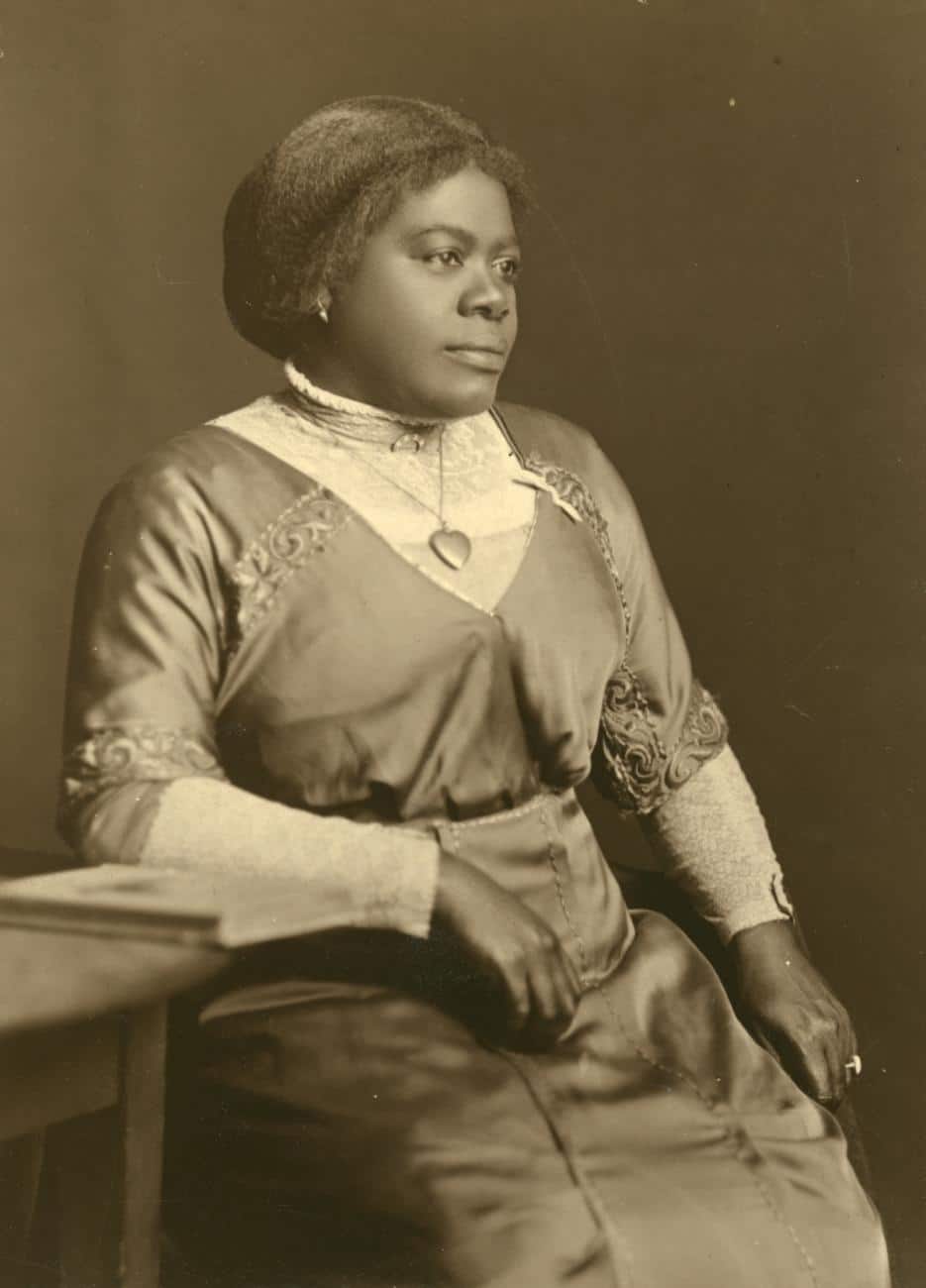
From 1924 to 1928, Mary McLeod Bethune served as the eighth president of the National Association of Colored Women’s Clubs (NACWC). This organization was established in 1896 to address important social issues such as lynching, education, suffrage, childcare, elderly care, job readiness, and fair wages. Before that, Bethune was also the president of the Florida Federation of Colored Women’s Clubs and the Southeastern Federation of Colored Women’s Clubs.
In 1928, she was invited to attend a conference on child welfare called by President Calvin Coolidge. In 1930, President Herbert Hoover appointed her to the White House Conference on Child Health.
In 1935, Bethune founded the National Council of Negro Women (NCNW) with the goal of creating a national coalition of women’s associations, organizations, and groups. Bethune described the council as a way to bring women together and work towards common goals. Bethune said of the council:
“It is our pledge to make a lasting contribution to all that is finest and best in America, to cherish and enrich her heritage of freedom and progress by working for the integration of all her people regardless of race, creed, or national origin, into her spiritual, social, cultural, civic, and economic life, and thus aid her to achieve the glorious destiny of a true and unfettered democracy.”
Her Attempt To Establish A Hospital For Black People
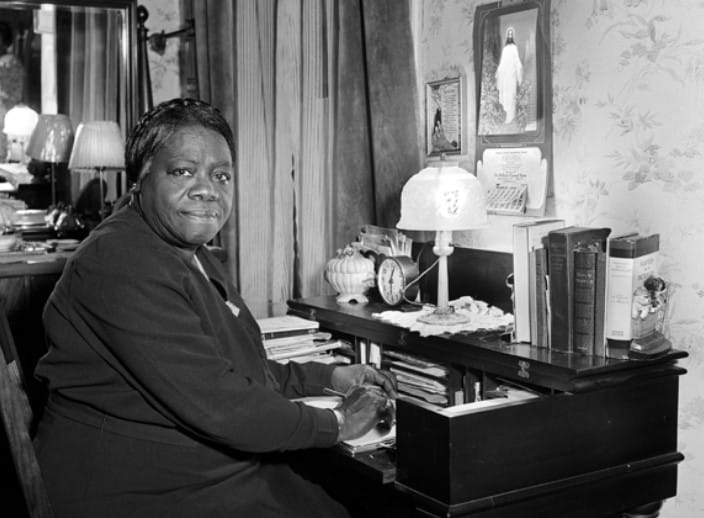
Mary had a motto for life: “not for myself, but for others.” Following this creed, she dedicated herself to many initiatives throughout life.
In the early 1900s, Daytona Beach didn’t have a hospital that would provide help to people of color. Mary McLeod Bethune had an idea to start a hospital after a troubling incident involving one of her students. The student, a young girl, became seriously ill with appendicitis. It was clear that she needed immediate medical attention, but there was no local hospital that would treat black people.
Bethune insisted that a white physician at the nearby hospital help the girl. When she went to visit her student, she was told to use the back door. At the hospital, she found that her student had been neglected, poorly cared for, and isolated in an outdoor area of the hospital. Determined to make a change, Bethune found a cabin near the school. With the help of sponsors who raised money, she was able to purchase it for five thousand dollars.
In 1911, Bethune opened the first black hospital in Daytona called McLeod Hospital. It initially had two beds, but within a few years, it grew to twenty. The hospital had both black and white physicians working alongside Bethune’s student nurses. Over the course of its twenty years of operation, the hospital saved the lives of many black people.
During that time, The McLeod hospital became a crucial source of assistance for both black and white members of the community. When there was an explosion at a construction site nearby, injured black workers were taken in and treated at the hospital. The hospital and its nurses were also commended for their efforts during the 1918 influenza outbreak. The hospital was filled to capacity during the outbreak and had to use the school’s auditorium as overflow space.
Advocacy For Civil Rights
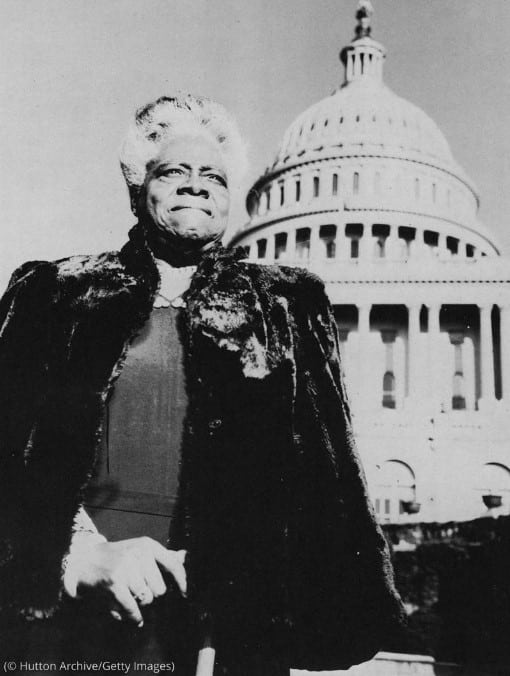
In 1931, when the Methodist Church supported merging the Daytona Normal and Industrial School and the Cookman College for Men into Bethune-Cookman College, Bethune became a member of the church. She was determined to integrate the mostly white Methodist Episcopal Church. However, she protested against their initial plans for integration because they suggested separate jurisdictions based on race.
Bethune worked hard to educate both white and black people about the achievements and needs of the black community, writing in 1938,
“ If our people are to fight their way up out of bondage we must arm them with the sword and the shield and buckler of pride—belief in themselves and their possibilities, based upon a sure knowledge of the achievements of the past.”
A year later, she wrote,
“Not only the Negro child but children of all races should read and know of the achievements, accomplishments, and deeds of the Negro. World peace and brotherhood are based on a common understanding of the contributions and cultures of all races and creeds.”
Impact on Black Youth Employment
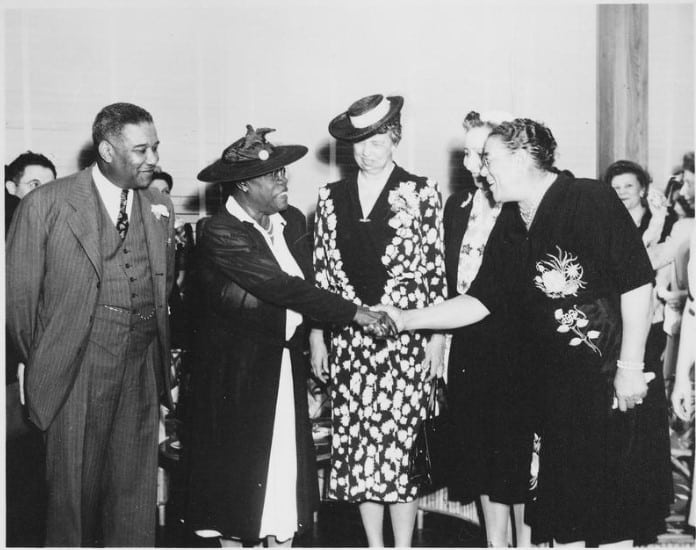
Bethune took an active role in politics and held various positions including Director of Negro Affairs at the National Youth Administration (NYA). She used NYA funds to help black students through school programs and ensured that black colleges participated in the Civilian Pilot Training Program.
The director of the NYA said in 1939: “No one can do what Mrs. Bethune can do.” Bethune’s effort prompted national officials to recognize the need for better employment opportunities for black youth.
The NYA’s final report, issued in 1943, stated, “more than 300,000 black young men and women were given employment and work training on NYA projects. These projects opened to these youth, training opportunities and enabled the majority of them to qualify for jobs heretofore closed to them.”
During her time at the NYA, Bethune advocated for the appointment of black officials to positions of power. She also pushed for programs to educate black communities and establish support for disabled black children.
Her Final Words

On May 18, 1955, Bethune died of a heart attack. African-American newspapers across the United States honored her with tributes in their editorials.
In her Last Will and Testament, she wrote nine maxims – “I leave you to love. I leave you to hope. I leave you the challenge of developing confidence in one another. I leave you a thirst for education. I leave you a respect for the use of power. I leave your faith. I leave you racial dignity. I leave you a desire to live harmoniously with your fellow men. I leave you a responsibility to our young people.”

